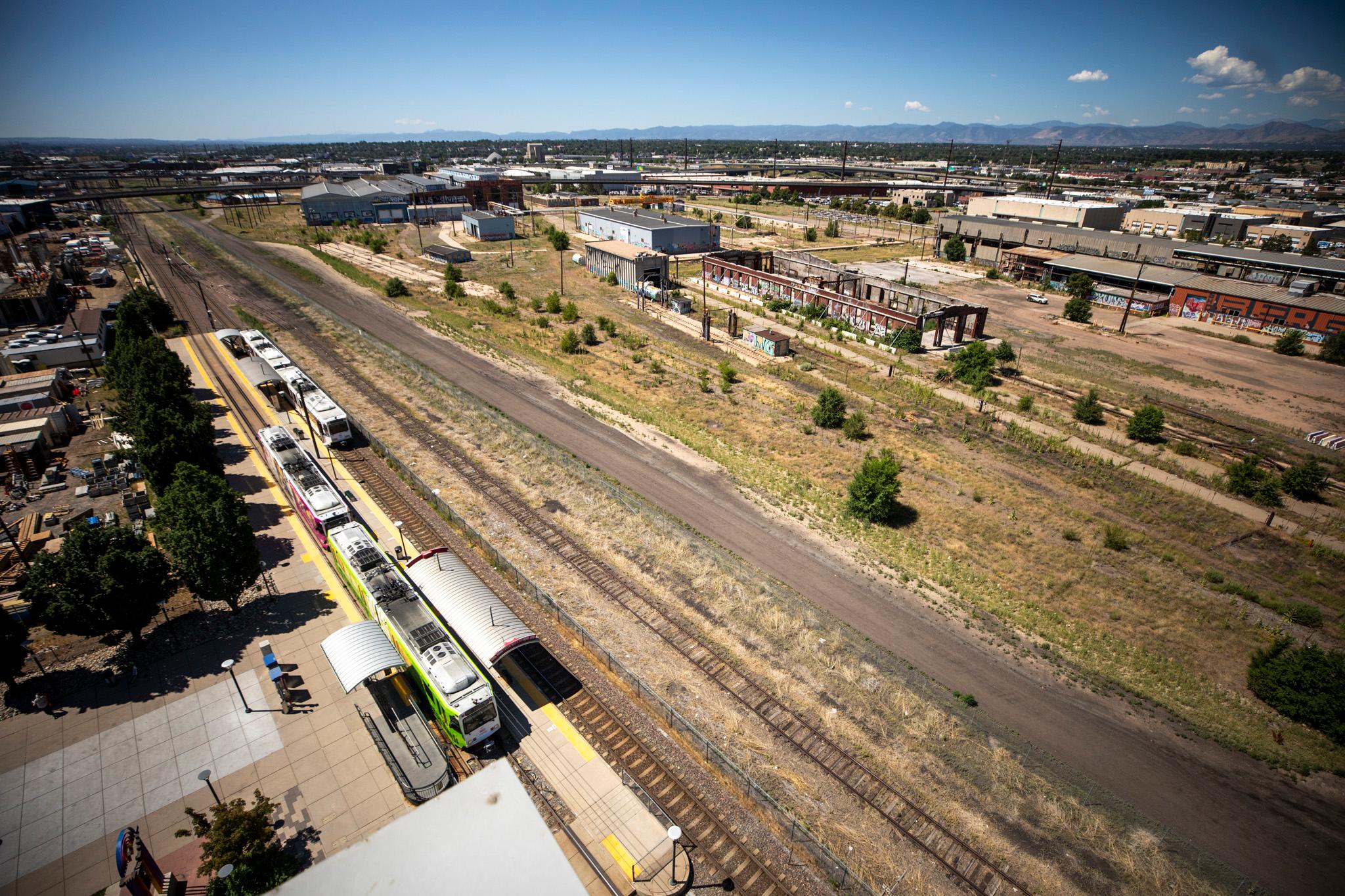Gov. Jared Polis would really like Denver to change its minimum wage laws for restaurant workers.
On Tuesday, he signed HB25-1208, a new law that allows local city governments to more easily lower their “tipped minimum wage.” And as he signed the law, he made it clear that he expected Denver officials to follow through and cut base pay for servers, bartenders and others.
“With this new legislative tool, I call on local governments in Denver, the City of Boulder, Edgewater, and unincorporated Boulder County to take action to address the tip credit and ameliorate pay disparities between front and back-of-house,” he said.
Restaurant owners have complained that Denver’s tipped minimum is one of the highest in the country, requiring restaurants to pay servers at least $15.79 hourly in addition to the tips they receive. For comparison, the city’s regular minimum wage is $18.81 an hour.
Under the new law, Denver lawmakers could lower the city’s tipped minimum wage by as much as $4, dropping it down to match other cities around the state, without changing the regular minimum wage for the city. But there’s no sign that local elected officials are jumping to action.
“We’ll review the finished legislation and discuss with Council to determine next steps,” wrote Jon Ewing, a spokesperson for Mayor Mike Johnston. “What is clear is that more must be done to help the restaurant industry, and we’ll keep working to ensure businesses can hire a full staff and pay those employees a fair, living wage.”
That was on April 30. A month later, Ewing said there was nothing to add at the moment.
One council member has ‘no intention’ of lowering the tipped minimum wage.
Some of the city’s elected leaders are staunchly opposed to the idea of lowering base wages for tipped employees.
“I certainly have no intention of doing that, and I haven't heard an intention from anyone else, either,” Councilmember Sarah Parady said.
She would rather see the concept of tipped minimum wages eliminated altogether, forcing restaurant owners to pay the full minimum wage to all workers.
“You would instead just be directly charging the customer the full value of the food and the service provided, and tipping would become more purely optional,” she said.
However, that’s not an option for cities like Denver. The new state law only gives cities the option to lower the tipped minimum wage, not raise or eliminate it.
Others are noncommittal.
“I don’t think we've really had a conversation within council, much less with the mayor’s office, to really understand how we want to move forward in the city of Denver,” Councilmember Chris Hinds said last week.
Councilmember Darrell Watson declined to comment. Council President Amanda Sandoval said on Thursday she was focused on the budget.
“I haven’t even thought about it at this point. I was a sponsor of the minimum wage ordinance. I’m always willing to listen to all sides, but no one has reached out to me since the bill passed,” Councilmember Kevin Flynn texted last week.
Other cities and counties also have decisions to make, too.
The county of Boulder, the city of Boulder and Edgewater all have higher minimum wages than the state’s, including higher tipped minimum wages.
“It’s going to be really interesting to see how each community figures out the choice they're going to make,” said Scott Wasserman, a consultant who helped get the bill passed. “They’re all in different situations.”
Will state lawmakers force the change?
In his signing statement, Polis threatened that state lawmakers could make the change directly if cities don’t act.
“We’ve given them that opportunity and now they must act to preserve this important industry. I will be closely watching progress in these two key jurisdictions, where restaurants are facing particular difficulties,” he wrote. “However, if they do not act to solve the issues created by the underlying wage law, the legislature may very well need to step in again, this time more assertively, next year.”
But it’s unclear if Polis could actually convince the state legislature to “step in” like that. The original version of the bill would have done what Polis is threatening now, forcing cities to lower the tipped minimum. That idea split statehouse Democrats and caused an intense labor fight in the restaurant industry, forcing lawmakers to instead leave the decision with cities.
The new law allows cities to reduce tipped minimum wages by a range. They can’t go lower than the statewide tipped minimum wage — currently $11.79 an hour — which is already used by most other cities.
Even if cities choose to lower the tipped minimum, the change can’t take effect until Jan. 1.
| Area | Minimum wage for 2025 | Tipped minimum wage for 2025 | Lowest allowable tipped minimum wage for 2025 under new law | Maximum change in tipped minimum for 2025 |
| Denver | $18.81 | $15.79 | $11.79 | $4 |
| Edgewater | $16.52 | $13.50 | $11.79 | $1.71 |
| Boulder unincorporated | $16.57 | $13.55 | $11.79 | $1.76 |
| Boulder | $15.57 | $12.55 | $11.79 | $0.76 |
| Rest of Colorado | $14.81 | $11.79 | $11.79 | $0 |











